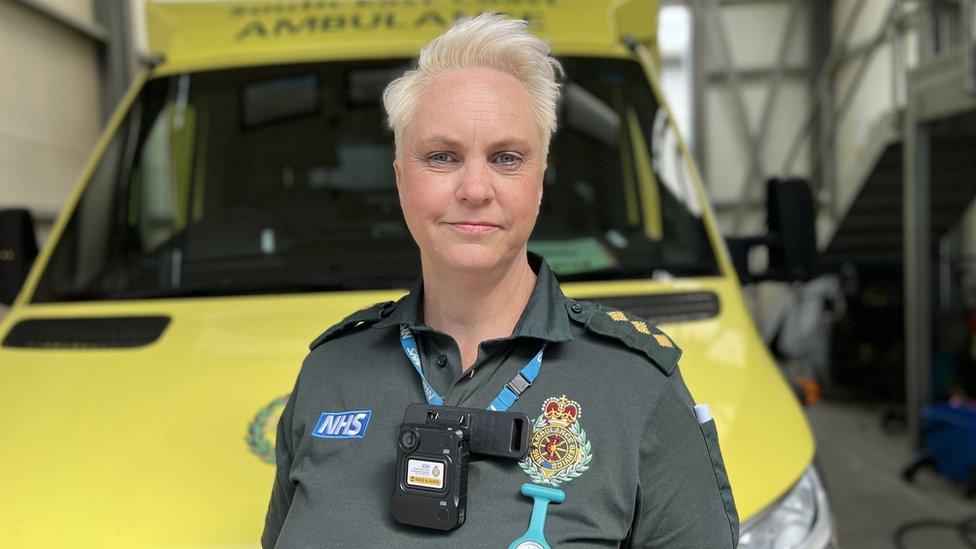Secamb: Ambulance staff report rising numbers of attacks
- Published
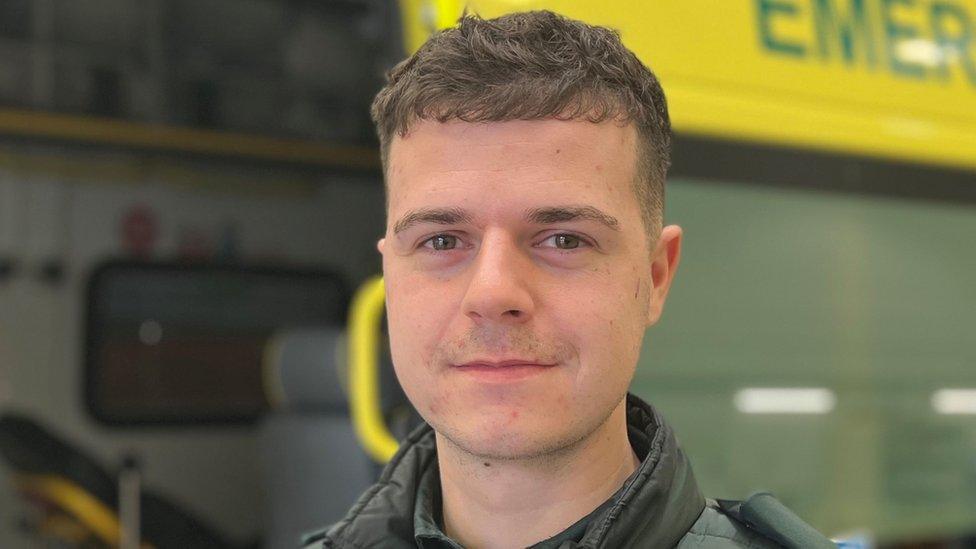
Ambulance worker Matt was assaulted by a patient in 2023 and says he welcomes the roll out of bodycams
Ambulance staff in south-east England are receiving new conflict resolution training as figures reveal a rise in the number of recorded attacks.
Overall, South East Coast Ambulance Service (Secamb) recorded 1,420 incidents of abuse in 2023 - 14% higher than the year before.
One Secamb worker, who has been assaulted at work, said "abuse just shouldn't be seen as part of the job".
The government said violence towards staff was absolutely unacceptable.
The figures recorded by Secamb include both physical and verbal abuse and account for all staff, including those in the control room.
Matt, 25, an associate ambulance practitioner, was assaulted by a drunk patient in Sussex in May 2023.
When he moved the patient to the ambulance, Matt said he became "very insulting and aggressive".
"He tried to punch me and then he kicked me," he said.
Figures obtained by BBC South East found that there were 249 physical assaults against frontline Secamb staff in 2023, compared to 186 in 2018.
'We are just human'
Matt added: "What if that patient had a weapon, or what if he managed to cause more significant injuries?
"We are just human beings underneath a green uniform."
The 49-year-old man who attacked Matt was jailed for eight months for assaulting an emergency worker.
The maximum jail sentence for assaulting an emergency worker recently doubled to two years.
Last year, Secamb announced that bodycams would be available to all ambulance staff.
Matt said: "We shouldn't have to wear a camera. Abuse just shouldn't be seen as part of the job."
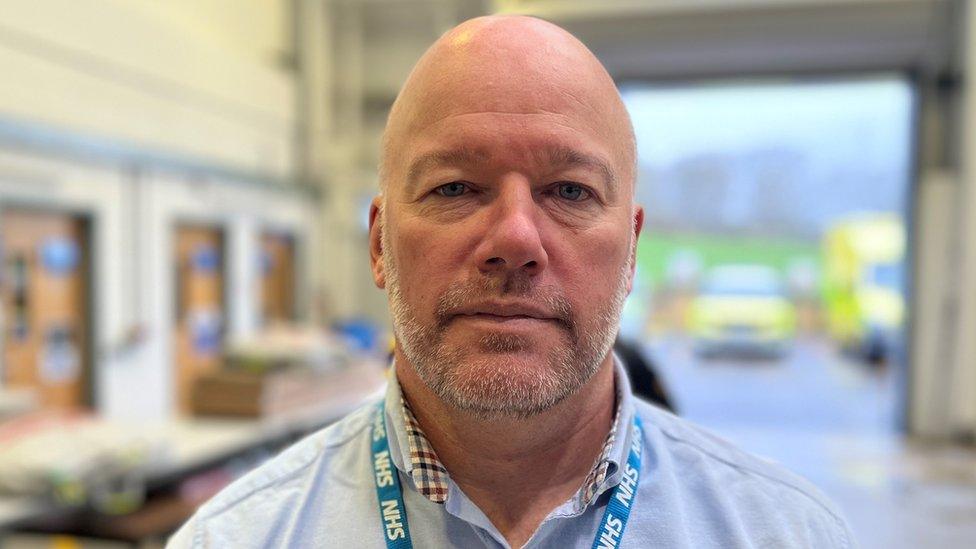
Dave Monk, Secamb security manager said initially body cams were trialled at six sites before a wider roll out
Dave Monk, Secamb's security manager, said although "the overwhelming majority" of the public treat staff with dignity and respect, the service was seeing an increase in both verbal and physical assaults.
"We do acknowledge that sometimes people are having a medical episode and they might actually not know what they are doing, but we are also seeing deliberate acts."
Sexual assaults on staff were also taking place, Mr Monk added.
He said expansion of body worn technology is a big step forward in protecting staff and made workers feel more confident.
Conflict resolution training, external is also being implemented to help staff de-escalate situations.
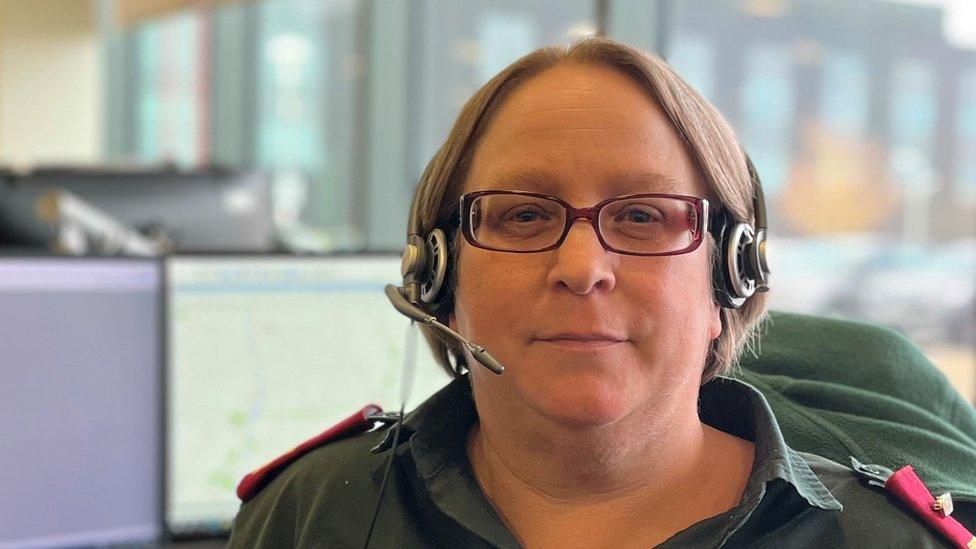
Vicki said some people were scared, ill or in a panic and they became abusive because of the stress
Vicki, an emergency medical advisor who triages emergency calls, said there had been a rise in demand on the service in recent years and patients who were frustrated with the system and in distress could become abusive.
"We have had people make threats to kill," she said.
She said the abuse affected workers' mental health and could be very upsetting for people.
"We are not robots," she added.
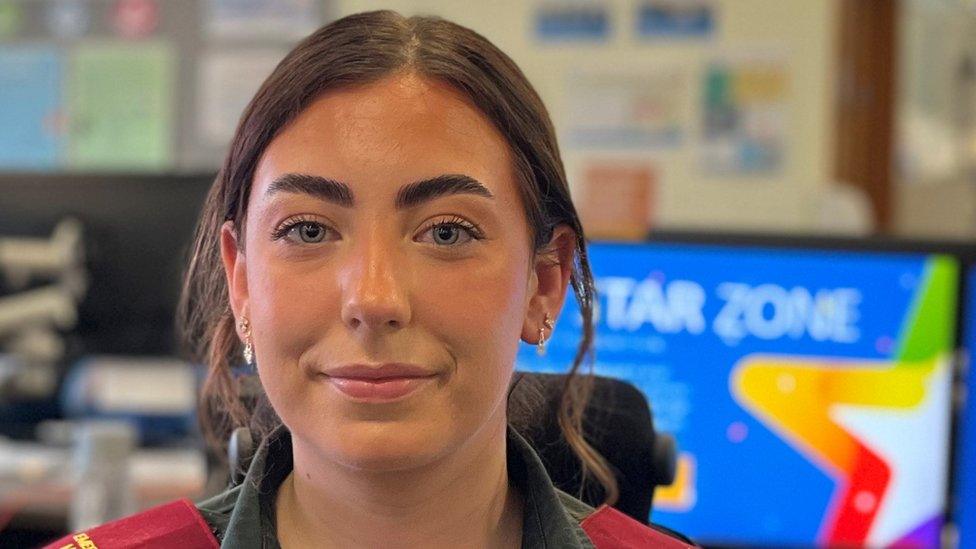
Jess said answering 999 calls was a challenging, intense but also rewarding job
Jess, who is also an emergency medical advisor, said she had suffered name-calling, abuse and threats.
She said: "We haven't got the resources all the time to be there 'right now'. I think there is a little bit of the public not understanding that."
During the 2022/23 financial year, an average of 35 ambulance employees in England were subjected to violence, aggression, verbal abuse or sexual assaults every day, the Association of Ambulance Chief Executives said.
Adam Hopper, National Ambulance Violence Prevention and Reduction Operational lead said: "These incidents can have a significant and lasting impact on our people, sometimes even leading them to leave the ambulance service."
A Department of Health and Social Care spokesperson said: "We are working closely with NHS England as they take action to prevent and reduce violence against staff, including through body-worn camera trials and a national violence prevention hub to ensure NHS staff can work in a safe environment."

Follow BBC Sussex on Facebook, external, on X, external, and on Instagram, external. Send your story ideas to southeasttoday@bbc.co.uk or WhatsApp us on 08081 002250.
- Published16 April 2024
- Published19 February 2024
- Published5 June 2023
